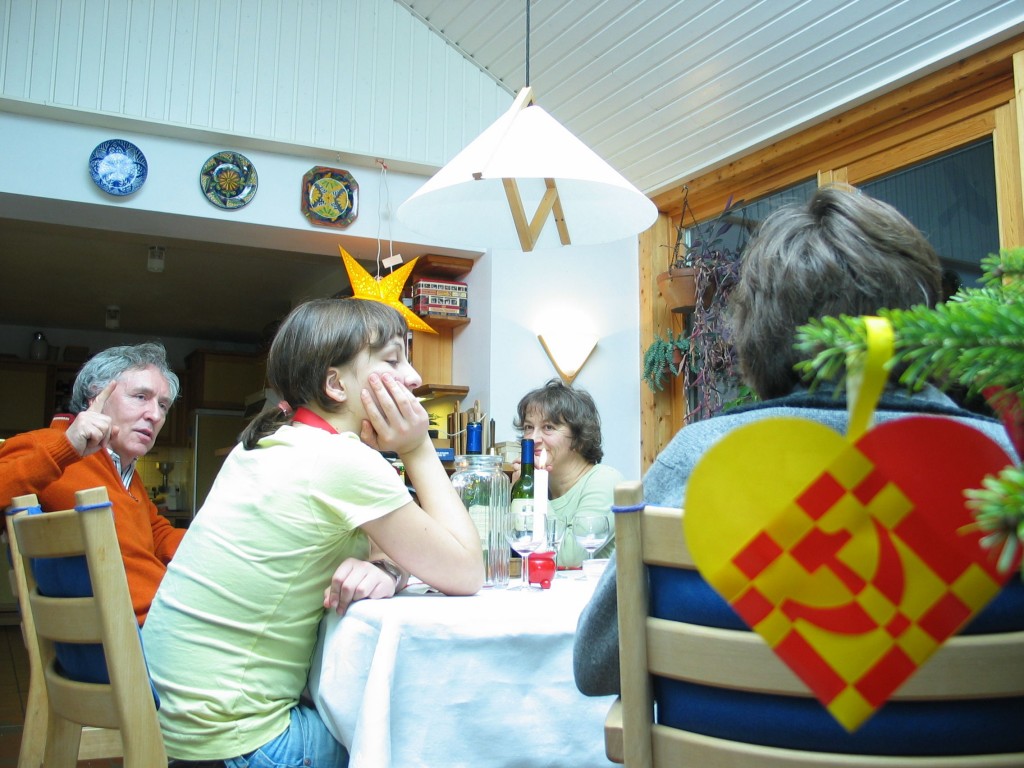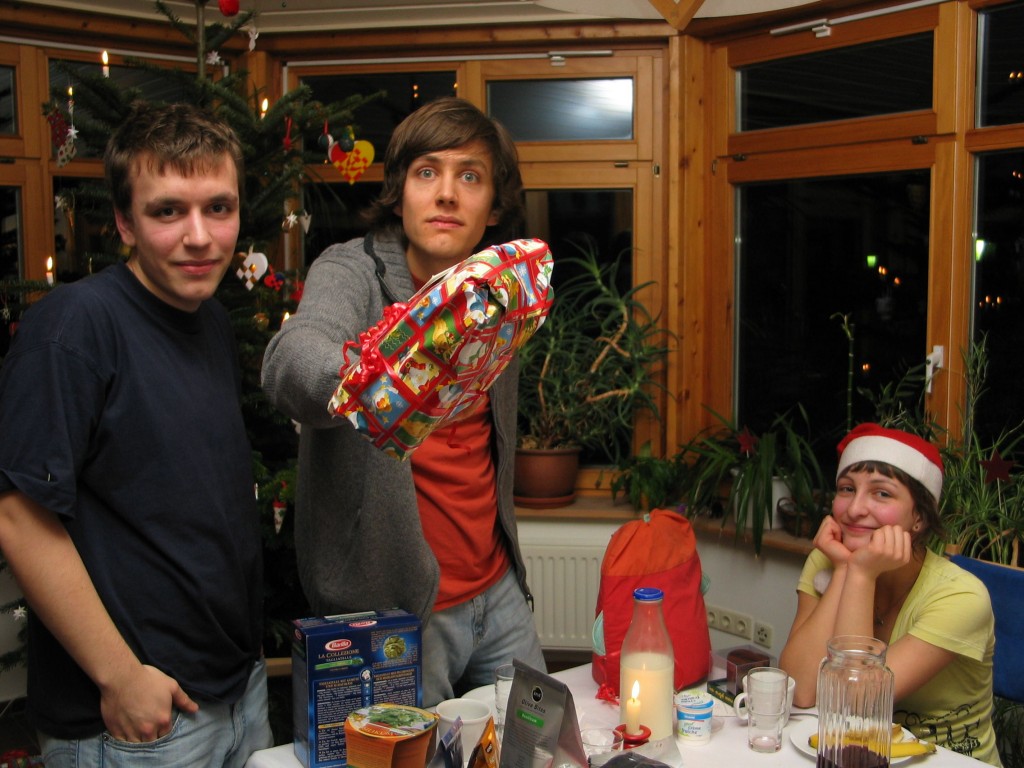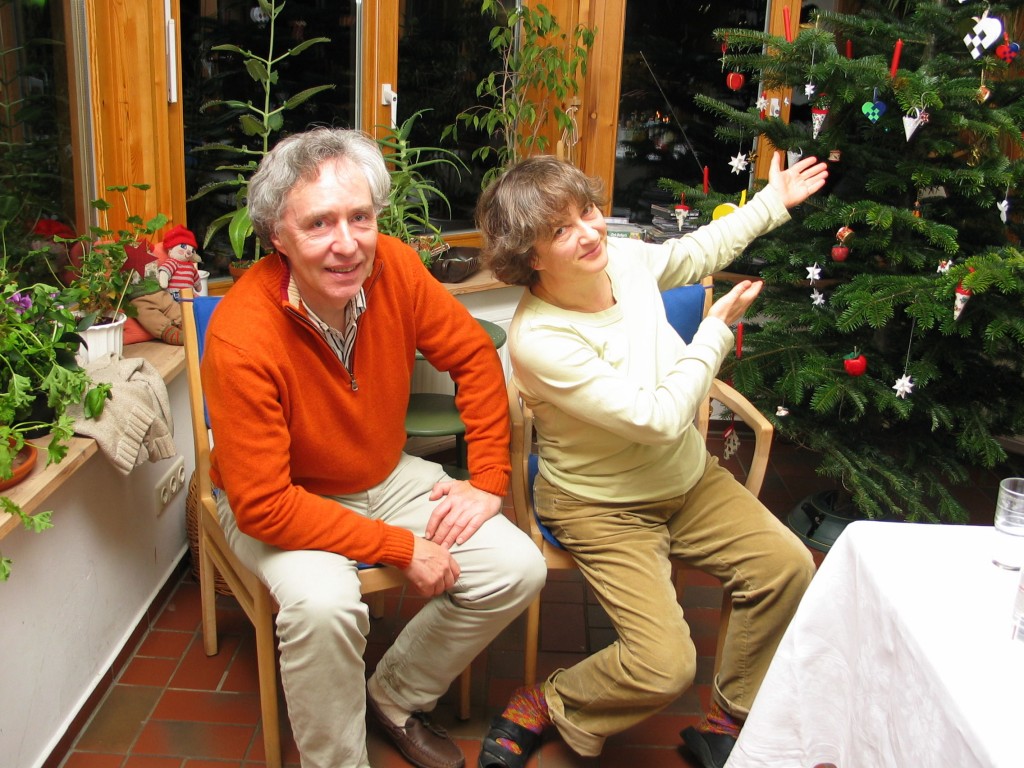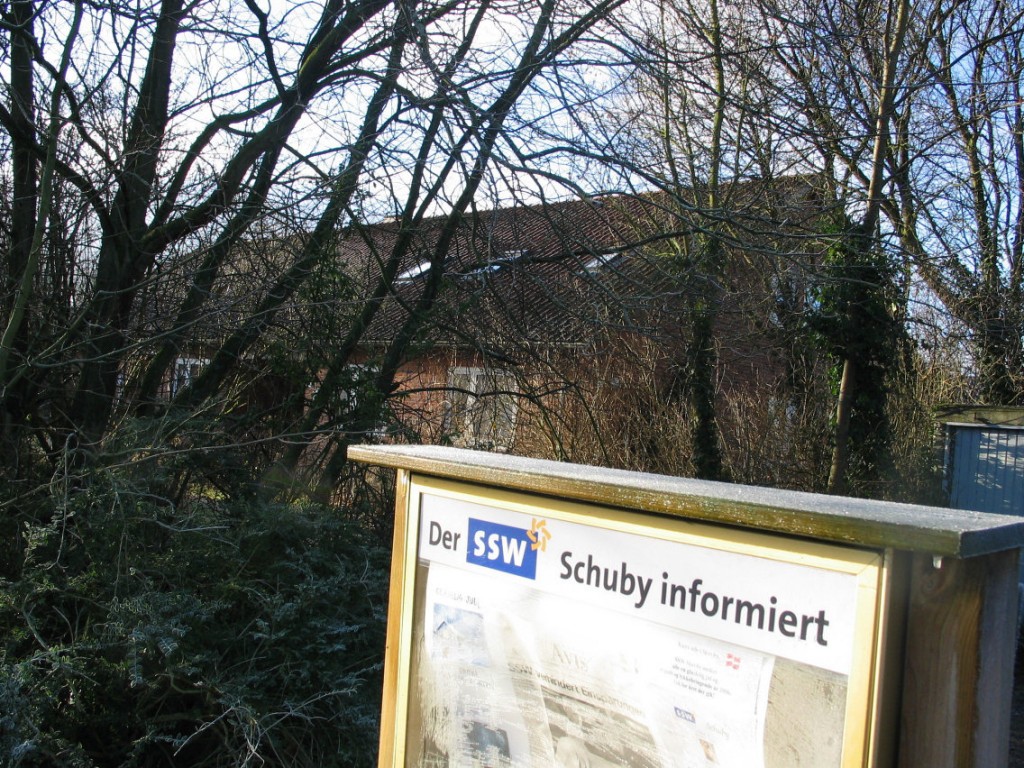Well, it sure has been a while seen I’ve been writing here. The thing is that I have spend quite a lot of time reviewing my book (“On the Margins” – see here) and getting it ready for global distribution. And before that I prepared for way too many examinations…

For christmas I went down south – first by bus to my grandmother in Copenhagen, Denmark where my mother and the youngest brother had been for a few days already, and then another few days later on to the German/Danish border land.

Lately, I have had a discussion with one of my co-students in Oslo on the matter of nationalism/racism. If I get him right, he claims something to the extent of that there is somehow a problem with immigrants not having the same “culture” inside themselfs that Norwegians have and that it somehow leads to a problem of increased lisening to macho-music and the rol back of women’s rights. To me all that sounds like a bunch of hidden racism, and our discussions got quite heated. Most of all though, I was surprised by his reaction – of me identifying with other immigrant groups, although… well, basically although I’m white and from another West European country (or several).
Well, I thought of this, and I rediscovered much of my starting point down here in Schleswig/Slesvig (the border land). On December 20, the Danish newspaper for Schleswig-Holstein ran a one-page story on how my family celebrates christmas (below in English):
Dansk julefrokost kan alle lide
Kalendertur. det er den 20. december, og hos familien Wilm i Bahnhofstraße 20 bliver både danske og tyske juletraditioner holdt i hævd.
Hos familien Wilm i Skovby (Schuby) ligger julemenuen fast hvert år: Julegås og risalamande. Bagefter bliver der serveret tysk julekage, Stollen. Familiens jul er en blanding af dansk og tysk tradition. Det skyldes, at Pia Wilm stammer fra København, og hendes mand, Gero, er vokset op i Kiel. Mens Pia fremhæver julegåsen som typisk dansk, mener Gero nu, at der også er tradition for den i Nordtyskland.
– Fælles for både dansk og tysk jul er, at man under alle omstændigheder s&oslahs;rger for at få noget godt at spise, mener Gero Wilm.
Typisk dansk
Det gæder også julefesten i den tandlægepraksis, han driver i Skovby. Her er menuen typisk dansk julefrokost med blandt andet sild, lun leverpostej og ribbensteg med rødkål.
[…]
Et juletræ hører naturligvis også til. Familien danser ikke omkring det men synger i stedet danske og tyske julesange. Det bliver dog til få sange i forhold til tidligere.
– Vi får først gaver, når der er sunget. Derfor gider drengene ikke synge ret meget, fastslår 14-årige Jensine tørt.
[…]
Ok, and that translates into something like:
Everybody likes Danish “christmas breakfasts” [eat-and-DRINK-overs held throughout December and half of January]
Calendar tour. It is December 20th, and the Wilm family at 20 Railroad Avenue both German and Danish traditions are being kept up.
Skovby. At the Wilm family in Skovby (Schuby) [second is the village’s real German name, the former is the name it had under Danish rule before 1864] the Christmas menu is certain every year: Christmas goose and after that milk rice. After that German christmas cake is served, Stollen [the name of a German cake]. The families christmas is a mix of Danish and German traditions. That is because Pia Wilm grew up in Copenhagen and her husband Gero grew up in Kiel [capital of northern-most German state]. While Pia points out the special Danish character of the Christmas goose, Gero thinks that there is also a tradition for it in northern Germany.
– Common for both Danish and German Christmas is that under any circumstances one makes sure to get something good to eat, Gero thinks. [which is of course standing in opposition to all those nations who make a point out of not eating good stuff]
Typically Danish
That also includes the Christmas celebration at the dental office, he has in Skovby. Here the menu is a typically Danish Christmas breakfast with among other things herring , warm… [some meat products I don’t quite know what are]
[…]
A Christmas tree has to be part of it as well, of course. The family does not dance around it, but instead they sing Danish and German christmas songs. But there will be a lot less Christmas carols compared to earlier.
– We will not get our gifts, before we have sung. That is why the boys do not like to sing a whole lot, the 14-year old Jensine concludes dryly.
[…]

Well, nice story… except that it’s not quite true. And it starts with the small things. Now if I’m not totally mistaken, I never had any goose – we had two ducks instead. “But that is what the farmer had left over this year,” my mother argues. Well, true enough, but it also shows a discrepancy between what shows up in the article, which is all about traditions, and the actual practical approach that is being taken in reality.
Then there is the German christmas cake – “Stollen.” Well, I never saw any of that either. In fact, instead we had English christmas cake like every year. That’s cause my mother’s mother is British and so my mother is not entirely Danish either. But putting more than two countries into the equation would make it all way too complicated for the newspaper – I understand that.
Next thing is the christmas tree and the singing. This year, my father and me bought it. It was like the 23rd or so. We went out to a shopping center and got the highest one amongst those discounted at 9 Euro [maybe 11USD] – so we got 3m for 9 Euro = 3 Euro/m – which is the absolute cheapest we could get. And about the singing… or rather: the lack thereof. Nobody talked about singing on the 24th. No one remembered that we were supposed to do that – although it is true that I have some faded memories which indicate that we once did that a few years ago.

I did not wtness the julefrokost of Gero’s dentist clinic, but on the 28th of December, Gero and Pia held another one for some of their German friends – both local ones with kids on the Danish school and some from Holstein who have no contact to the Danish minority. Beforehand we were all discussing the food and beverage. The main problem was that people drink a lot of alcohol at these julefrokosts and that the food is rather fat. “Just tell them that it’s normal to eat all kinds of salads,” I recommended, “none of them will actually know what it’s really supposed to be like.” And so they did just that and approximately half of the julefrokost consisted of salads. In addition, all the under thrity year olds drank Coke or alcohol-free beer (by pure peer pressure exerted by us Wilm-kids as the others believed they had to follow our “Danish tradition”), and after a round or two of beer for the grown-ups, everybody switched to tea and coffe for the rest of the day.
As one can see, the way christmas was ethnified in the paper, must be the result both of what the reporter wanted to write, and that my sister and parents filetred what they said to make it easy enough for the reporter to digest. Telling him that none fo us are christians, that there is more than only Danish and German in the blend, that we’re more left-wingers than followers of some nation or other, and that a lot of it has to do with practicality would make it all too complicated. But it’s not really only small distortions: what we simply do is to accept nations as being real and workable categories, and then we change the facts to fit with that picture.
Of course, the presentation in Flensborg AVis is a whole lot more positive than the display of various other ethnic groups in the Norwegian press, and in addition, it is a rather new thing that they accept the kind of “ethnix mix” between German and Danish culture. Up until not too long ago, any one having anything to do with Germany was by definition not really Danish enough.
Nevertheless, the exotifying anbd essentializing description of people that happen to have ancestors from some other geographic location in both media here and in Oslo is very much the same – and that is also why I don’t buy the version the media presents to me of people with other backgrounds than my own.

Creo que seria una buena idea se cerca de las fotos escribieras un poco sobre quienes las personas son y en donde estas.
There you go Irma aka "Dolores"! It’s my brothers, sister and parents, of course!